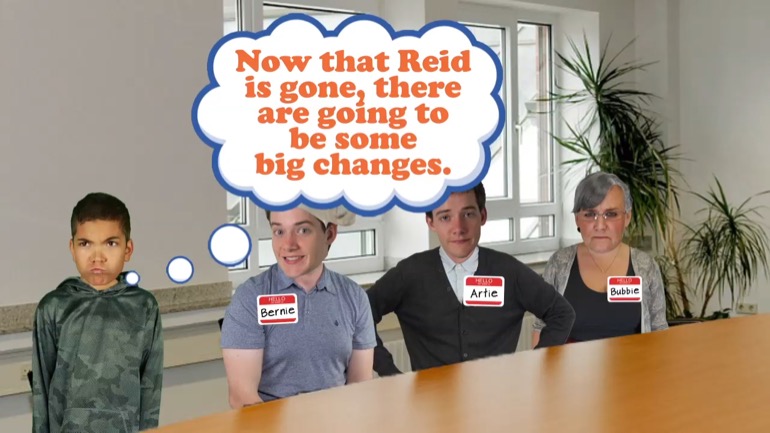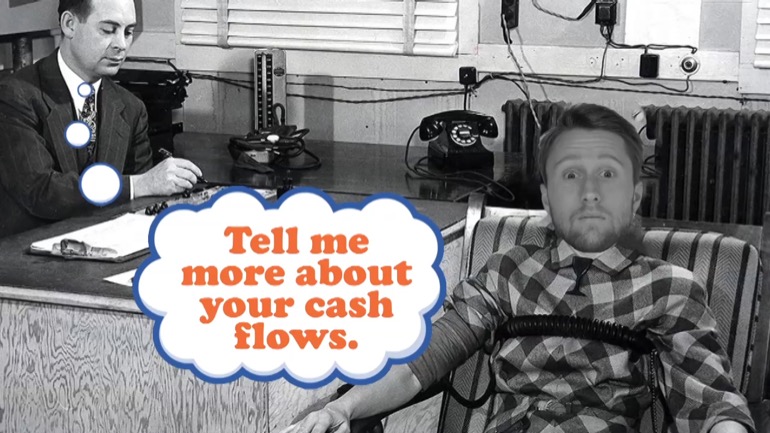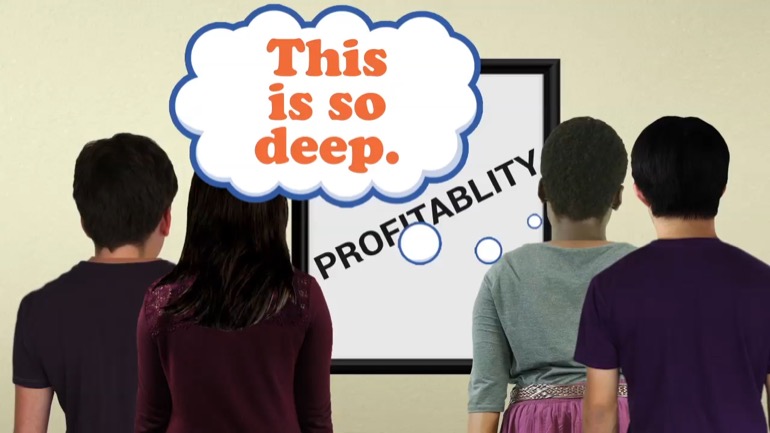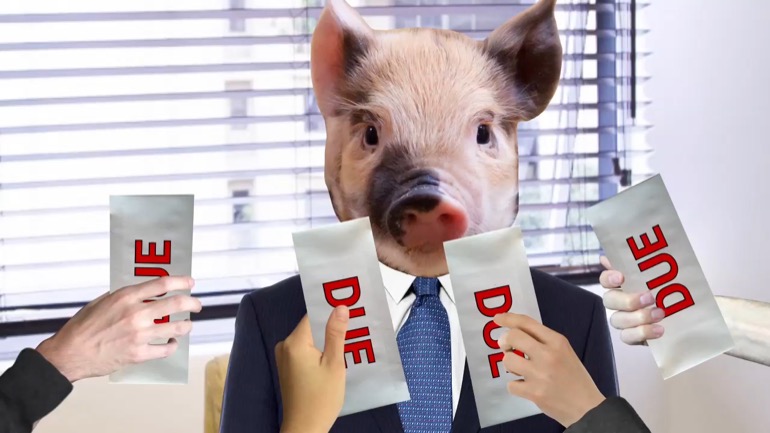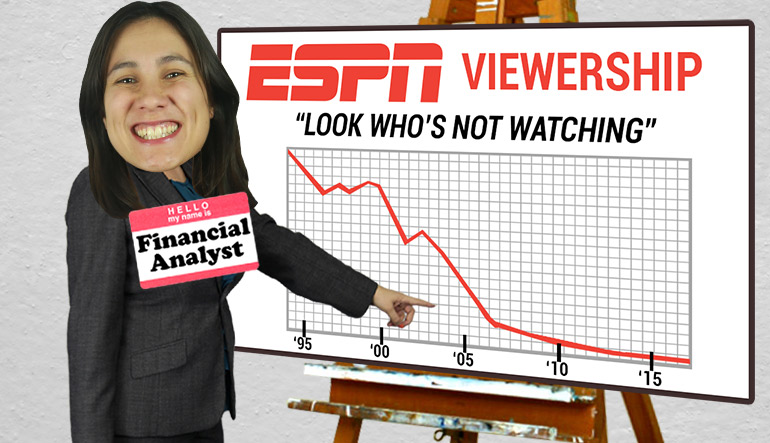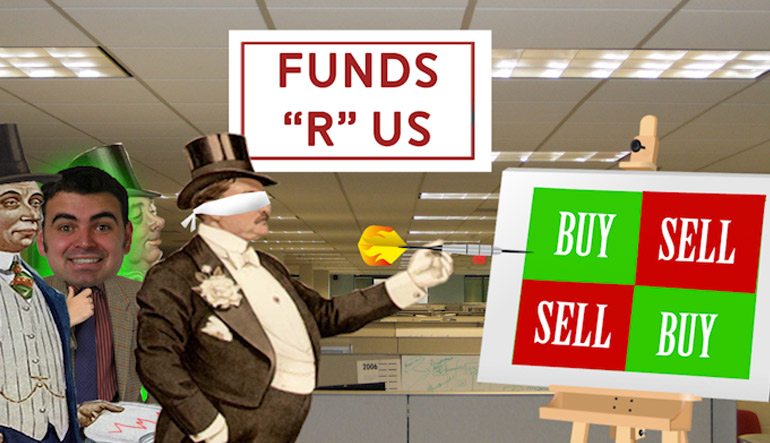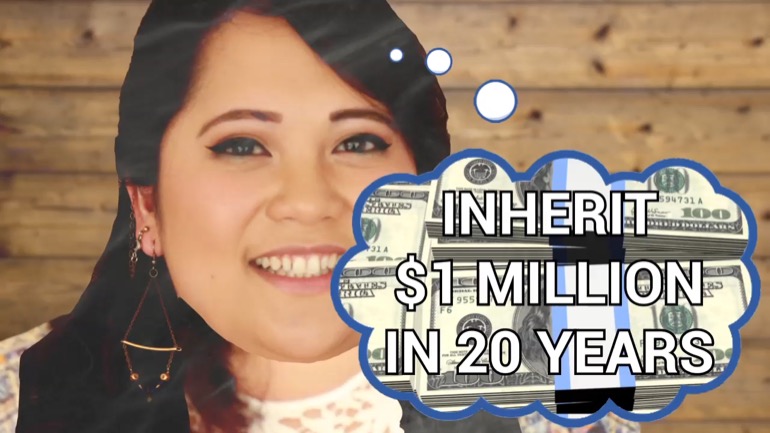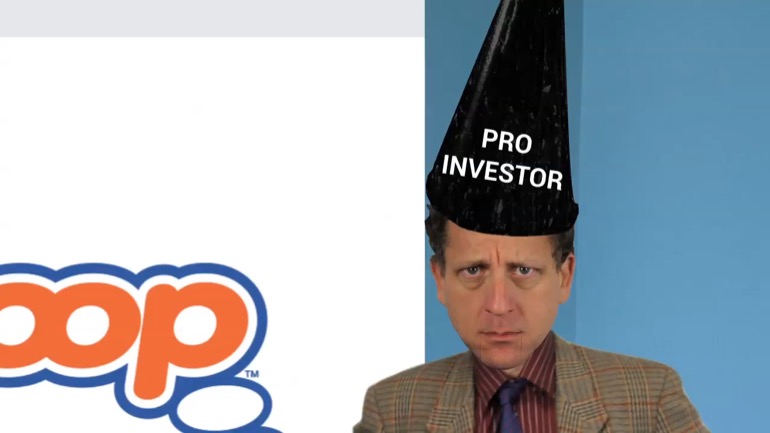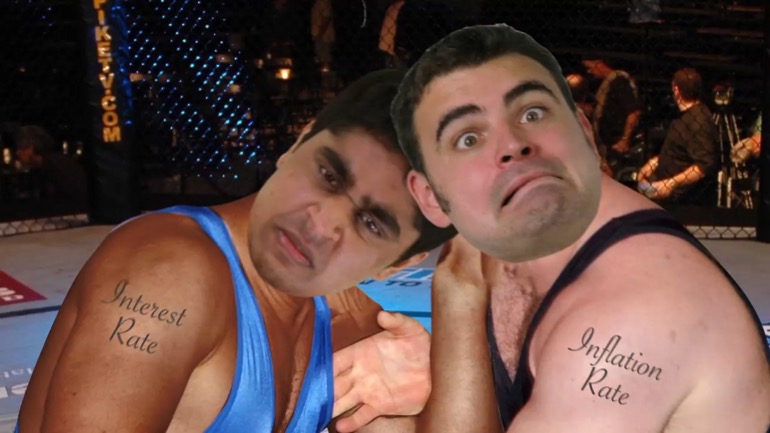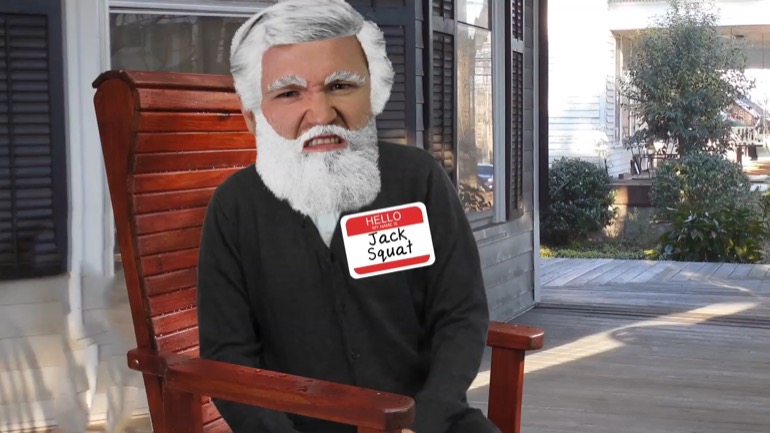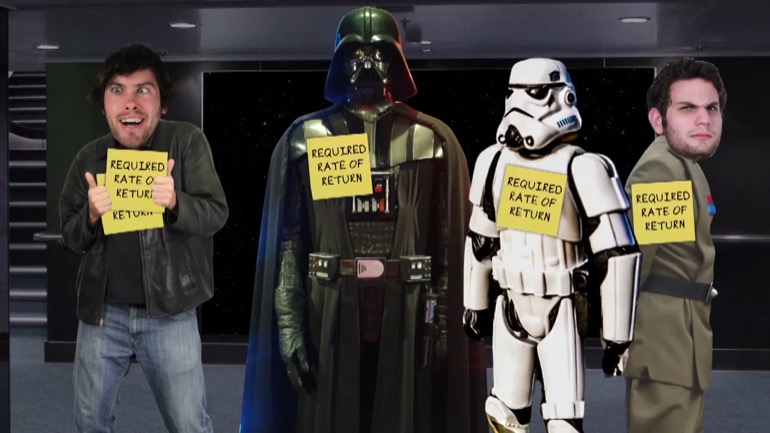ShmoopTube
Where Monty Python meets your 10th grade teacher.
Search Thousands of Shmoop Videos
Principles of Finance Videos 166 videos
How is a company... born? Can it be performed via C-section? Is there a midwife present? Do its parents get in a fight over what to name it? In thi...
Company Formation, Structure, and Inception: Unit Intro. Sorry, Leo DiCaprio fans—we're not going to be breaking down the plot of Inception. We'r...
Okay, so you want to be a company financial manager. It's basically up to you to make money for the shareholders. It would also be swell if you mad...
Principles of Finance: Unit 2, Investment Ratios 7 Views
Share It!
Description:
The Rule of 72. The Sharp Ratio. Alpha. Are these investment ratios, or band names we've been tossing around? Only one way to find out.
Transcript
- 00:00
Principles of finance ah la shmoop investment ratios well thus
- 00:05
far in this section we've been covering company operating metrics
- 00:09
But as the crack savvy financial manager that you are
- 00:13
you don't just swim the hundred meter freestyle You do
- 00:16
the four hundred I am all strokes all folks Well
Full Transcript
- 00:21
the key factors you need to understand regarding investment metrics
- 00:25
revolve around to basic questions What was the total return
- 00:28
or all in performance of the investment And how much
- 00:32
risk did you take to get there All right well
- 00:34
let's start with some of the curve balls you'll get
- 00:36
in point one above an investment manager tells you she
- 00:40
was off eighty two percent this year Yet on your
- 00:43
statement it shows that your capital only grew fifty two
- 00:46
percent Did she lie Well no And yes odds are
- 00:50
good that this investment was in a hedge fund which
- 00:53
charged you two per cent annual fee and then took
- 00:56
twenty percent of profits up to a certain level and
- 00:58
then fifty percent of profits above another level Yes obscene
- 01:01
x rated profits to the hedge fund And how do
- 01:04
you really grow that much in a year being truly
- 01:07
Hedged anyway Well you probably weren't You were naked long
- 01:11
and well that's a different story later A lot of
- 01:13
hedge funds say their hedge than they really armed Anyway
- 01:15
the gross return and the net returned to investors are
- 01:18
totally different animals and you need to know the difference
- 01:21
Journalists write about how the market was flat for a
- 01:24
decade that it was a lost decade from nineteen seventy
- 01:27
two to nineteen eighty two because while journalists get paid
- 01:30
on clicks and non actual quality research and because well
- 01:34
they didn't take this course Obviously these journalists decry how
- 01:37
investors were invested in the stock market and got zilch
- 01:40
not a nothing for their investments because of course the
- 01:43
s and p five hundred was basically flat from nineteen
- 01:46
seventy to about one hundred until nineteen Eighty to about
- 01:49
a hundred Okay so you know the scene in the
- 01:51
graduate where the ski easy father whispers to dustin hoffman
- 01:56
plastics Yeah alright what were whispering different it's Well dividend
- 02:01
rates during that time period went from three ish percent
- 02:04
to about eighty percent toward the end and if an
- 02:06
investor had simply reinvested the dividend taub i'm or of
- 02:11
there s and p five hundred index fund Well they
- 02:13
actually would have made a modest but knights return during
- 02:16
that era of about five or six percent per year
- 02:19
Compounded it's Nothing to write home about but hardly a
- 02:22
lost decade and way better than what bonds did during
- 02:24
that time And oh by the way this was pretty
- 02:27
much the worst decade in our modern history to pluck
- 02:30
from the rule of seventy two is great little handy
- 02:32
dandy financial tool In this situation the rule of seventy
- 02:35
two is based on a log arrhythmic view of doubling
- 02:38
meaning that it answers at a given interest rate How
- 02:41
long does it take for an investment too Double So
- 02:45
let's say you're getting a twelve percent return on an
- 02:47
investment year after year Well at that rate it'll take
- 02:50
six years to double So what we did here Twelve
- 02:53
in tow Seventy two gets you six There you go
- 02:56
If we compounded at four percent in seventy to divide
- 02:58
by four there we go Yeah it take eighteen years
- 03:00
to double at ten percent Well seven point two years
- 03:03
at the very high end of rates While the model
- 03:05
falls apart yet fifty two percent The numbers don't quite
- 03:08
work but the rule wasn't really designed for the corner
- 03:10
cases No this one Well it'll come in handy in
- 03:13
this course and in life Another big one is the
- 03:16
sharpe ratio Bill sharp is a god You know like
- 03:20
eric clapton Bill invented this concept of a sharp ratio
- 03:24
which links risk and reward to investors You don't have
- 03:27
to know The calculations are actually being maid You just
- 03:31
have to understand the concept for this course Well the
- 03:34
basic idea is that if you returned to your investors
- 03:37
fifteen times their money over ten years that might be
- 03:41
awesome from a sharp ratio perspective But it might not
- 03:44
be either Sharpe ratio's measure how much risk you took
- 03:47
in delivering a given set of investment returns So this
- 03:51
return in particular might be awesome You had an unlevel
- 03:53
ridge diversified portfolio of investments that lonely simply did well
- 03:57
over time That is You had hi alva or high
- 04:00
knowledge in allocating your investment portfolio Not awesome You had
- 04:05
eighty two venture capital investments eighty one of which went
- 04:09
fully bankrupt And then you had google lottery tickets That's
- 04:13
All that was you've got lucky to win one lottery
- 04:16
ticket out of eighty two and lottery tickets are great
- 04:18
but you can't exactly count on them They're not really
- 04:21
investing all right so that's the basic deal here Total
- 04:24
return What was your total return with dividends that of
- 04:27
fees that of costs eventually net of taxes will cover
- 04:30
all that stuff And second thing you've got to think
- 04:32
about is how much risk did you take to get
- 04:34
there was a lottery tickets or were you just smart
- 04:37
Oh
Related Videos
GED Social Studies 1.1 Civics and Government
What is bankruptcy? Deadbeats who can't pay their bills declare bankruptcy. Either they borrowed too much money, or the business fell apart. They t...
What's a dividend? At will, the board of directors can pay a dividend on common stock. Usually, that payout is some percentage less than 100 of ear...
How are risk and reward related? Take more risk, expect more reward. A lottery ticket might be worth a billion dollars, but if the odds are one in...








